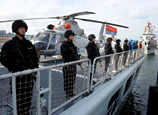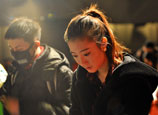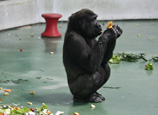
Traditional labor-intensive industries made significant progress in Zhejiang in January, with the textile industry seeing exports grow by 9.4 percent year-on-year.
The knitting department at Hangzhou Light Industrial Products Arts and Crafts Textiles Import and Export Co Ltd saw its export volume register 23.88 percent year-on-year growth last month, said Yang Huimin, the department manager.
Yang said it is becoming routine to see export figures surge at the beginning of the year. Spring Festival falls in the first two months, and companies will complete all shipments before Lunar New Year's Day.
"The number of orders on hand, the size of each order and the time we take to deliver each order remained the same. However, most textile companies of our type are still faced with many difficulties, as prices of raw materials are rising. We are also losing the competitive edge of lower labor costs, with some of our former European partners turning to factories in Bangladesh, Vietnam and Cambodia," she said.
The ongoing debt crisis in Europe has made the company's business in countries such as the Netherlands and Britain difficult. Therefore, it has been turning more to the United States and is exploring South American countries.
"Former world-leading economies have remained stagnant. Therefore, we have been carefully studying South American markets, which may promise more opportunities. But we should not be over-optimistic about the January numbers. It is more rational to review export volumes in the first three months to predict the trend for the year," Yang said.
Exports of shoes also rose in January, by 13 percent year-on-year. Wu Beilei, owner of Wenzhou Gaotian Shoe Co Ltd, said the company saw growth slightly higher than the authorities' statistics. But she also said it is a type of cyclical increase and even predicted that exports might decline by more than 13 percent in February.
Instead of investing a huge amount in developing trendy shoes, the company focused on functional shoes, mainly targeting the elderly, and retaining its orders.
"At present, we export 70 percent of our products to Japan and the rest to Europe. But both regions lack a vigorous economic rebound," she said. "However, we are not even thinking of exploring any new market. Shoemaking is a very demanding industry. It's better to just let it be."

















 Auto-chat app sparks social skills concern: A littile yellow chicken can talk, really?
Auto-chat app sparks social skills concern: A littile yellow chicken can talk, really?


![]()
